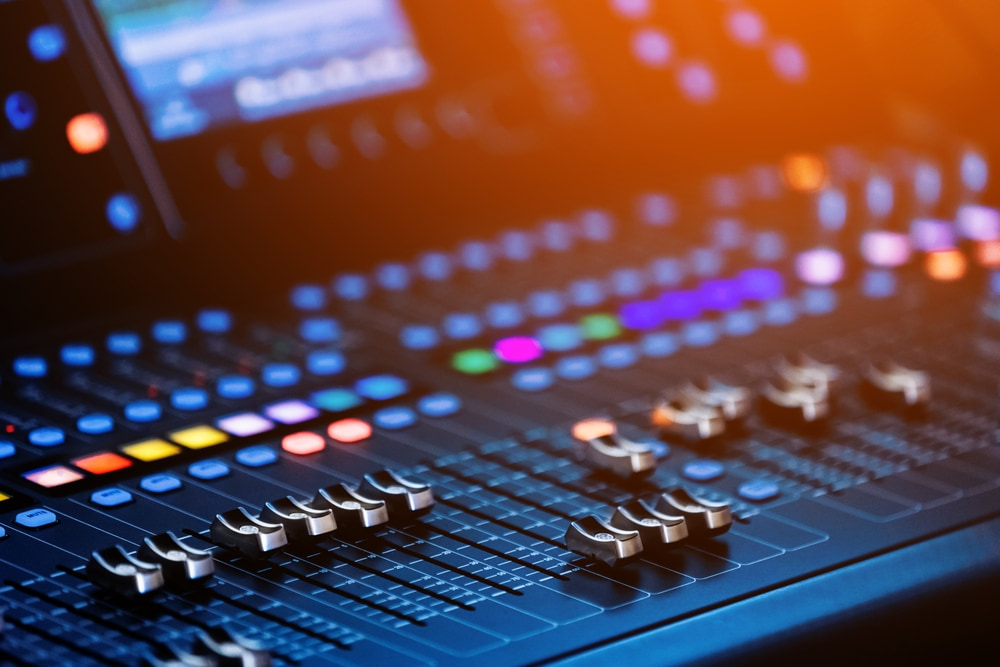Digital vs. Analog: Audio Mixer Comparison

Ever since digital mixers hit the market in Florida and worldwide, the “what’s better” debate has been rippling throughout the pro audio channels. Some immediately embraced the new tech, won over by flexibility, convenience, and sheer power. Others still fiercely advocate for analog mixers, swearing by their warm sound, straightforward operation.
So, who’s wrong and who’s right? The only real answer is – both and neither.
While both devices serve the same fundamental purpose, the way they do it and the benefits they bring can be vastly different. Since choosing the right type of audio mixer is the most important decision an audio professional can make, it definitely pays to learn what each brings to the table.
What are the benefits of a digital mixer?
Combining the entire sound management system in one digitally powered package, digital mixers offer a range of unique benefits:
- Flexibility in routing: Built-in software allows instant signal rerouting, almost completely eliminating the need for cable patching.
- Internal processing: Modern mixers typically come with an integrated DSP that enables EQ, compression, reverb, delay, and other forms of signal manipulation, eliminating the need for racks and outboard gear.
- “Save & Recall”: The ability to snapshot many different settings and recall them instantly makes digital mixers superior for multi-act events and recurring shows, such as festivals and theater plays (respectively).
- Compact & mobile: Since professional consoles pack virtually everything necessary for audio production in one case, they have relatively small spatial and logistical requirements.
- Remote capabilities: A lot of modern mixers feature app support, allowing sound engineers to control them on-the-go, via laptops, tablets, and even smartphones.
- Integration: The latest models are compatible with AV-over-IP protocols, enabling them to seamlessly integrate with standard IT infrastructure.
What are the benefits of an analog mixer?
With everything being said about digital mixers, it almost seems like their analog counterparts are doomed to shudder in the corner. Well, that simply isn’t true, since “oldtimers” still have a lot to offer, including:
- Simplicity: Every control has its dedicated button, knob, or fader – what you see is what you get, and a lot of people appreciate that.
- Hands-on workflow: No menus, no layers, no thousands of settings – you’re adjusting everything directly and immediately, making you essentially part of the performing crew.
- Gradual learning curve: Deriving from the previous two points, the “basic” nature of analog mixers makes them easy for total beginners to operate without extensive training.
- Durability & reliability: Generally more robust than digital consoles, analog variants also aren’t susceptible to software/firmware issues.
- More cost-effective at small scales: Analog mixers, especially simpler ones or those with lower channel counts, are generally more affordable.
- Character: Probably the prime reason why analog mixers will never get old – their unique warmth and subtle coloration make anything produced sound unique.
Are digital mixers better?
The answer depends entirely on your needs and preferences. Are you going for convenience, portability, and advanced features – all in a single device? Then the digital mixer is a clear winner and by a mile. However, if simplicity, classic sound, and feeling like you’re a “part of the show” matter more to you – then analog is your game.
Where can I find cutting-edge digital mixers near me in Florida?
Looking for a pro digital mixer? Look no further than Pro Audio Services! With a legacy of excellence spanning 25 years, we have the equipment and the know-how to set you up with the right setup for your setting.
Our expertise is available throughout Florida, so whether you’re in Miami, Cape Coral, or all the way in Jacksonville, you can count on our expertise. Reach out to us today, and let us help you deliver sound that is unforgettable!

